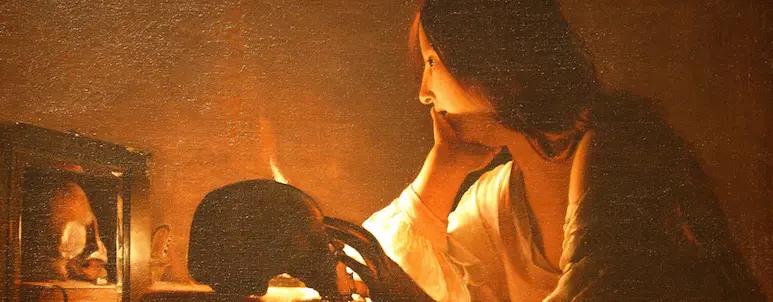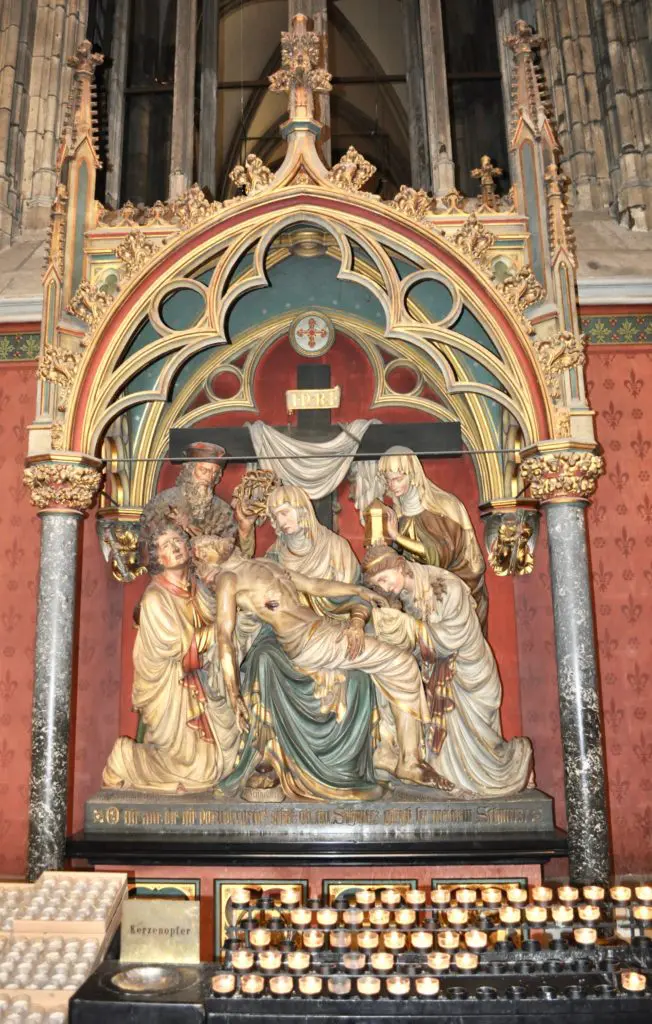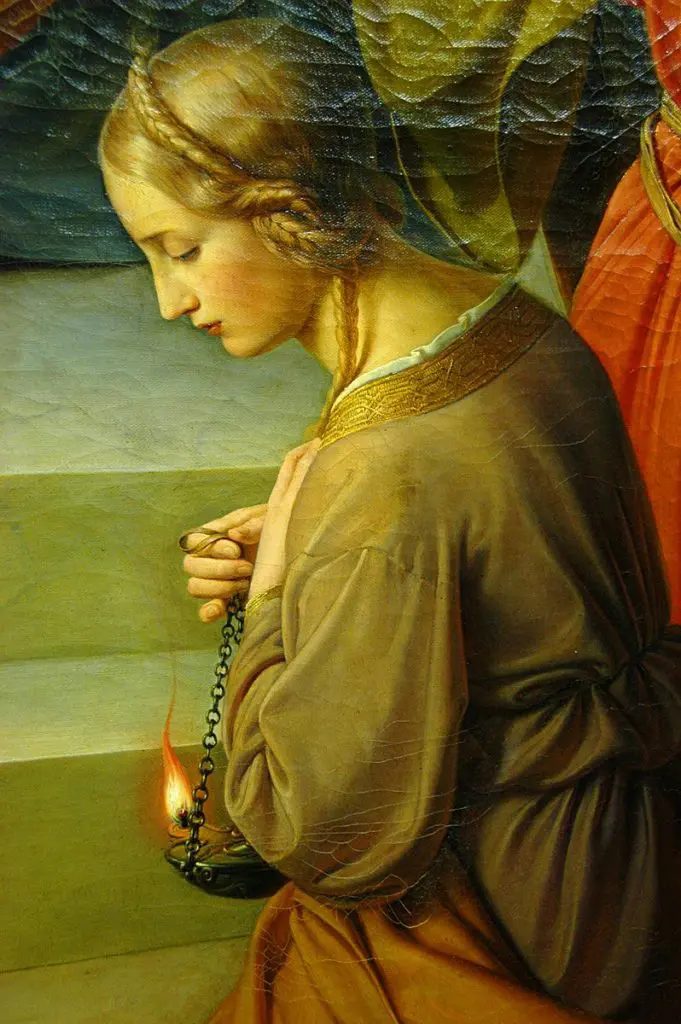Christians as Salt, Leaven and Light to the World

“No one who lights a lamp conceals it with a vessel or sets it under a bed; rather, he places it on a lampstand so that those who enter may see the light.” — Luke 8:16
There is a moving scene in the novel The Brothers Karamazov by Fyodor Dostoyevsky. In it Fr. Zosima, a holy hermit, is dying. He is imparting his final advice to his fellow monks. His exhortation reaches a crescendo when he urges the monks not to think of themselves as any holier than those outside the monastery. On the contrary, he tells them to think of themselves as worse than others. Fr. Zosima then makes this striking statement: “When [a monk] realizes that he is not only worse than others, but that he is responsible to all men, for all men and for everything, for all human sins, national and individual, only then is the aim of our seclusion attained. For know, dear ones, that every one of us is undoubtedly responsible for all men and everything on earth, not merely through the general sinfulness of creation, but each one personally for all mankind and every individual man…”
We are “responsible to all men, for all and everything, for all human sins…” This idea might initially strike us not only as completely wrong, but positively crazy. I can understand this reaction. In a way, I suppose, it’s true: we can’t actually be responsible for all the sins of everybody in the world. But, I don’t think that’s what Fr. Zosima was saying. Rather than making a statement of fact, I interpret Fr. Zosima’s as exhorting Christians to assume a certain attitude towards themselves, the world and their neighbors.
In the first place, Fr. Zosima’s words direct our attention to a much-forgotten and painful truth: namely, that we are far more responsible for others than we like to think. Our sins are never merely “personal” sins. Our failure to be holy affects not only our life, and the lives of those closest to us, but also our neighbors, our town, our country, and the whole human race. By failing to live the Gospel to the fullest we are robbing the whole world of the saint that we are called to be. By persisting in our sins, we are failing to act as the salt and light that Christ called us to be. How many of the apparent sins of others are due to our own failures to be saints, to serve as a good example and to intercede spiritually for others? We may never know. I suspect, however, that if Christ did reveal the magnitude of the impact of our sins, that we could not bear the weight of that burden.

A penitential St. Mary Magdalene
In the second place, Fr. Zosima’s words remind us that the only sins we can know with certitude are our own. The innermost reaches of the human heart is hidden from us. We can never know with certitude what motivated a person to behave the way they did. Our own sinfulness, however, is as clear as day. What this means is that, in a practical sense, it is perfectly correct to consider ourself as the only and worst sinner on earth. This is an entirely biblical attitude. Consider St. Paul: “Christ Jesus came into the world to save sinners—of whom I am the worst” (1 Timothy 1:15). This attitude frees us from the futile and exhausting practice of comparing ourselves to others. Instead, it directs our whole attention to our own sins, and call to holiness. As Fr. Zosima observes, far from crushing us, this attitude can free us in humility. “For monks are not a special sort of men, but only what all men ought to be,” he says. “Only through that knowledge, our heart grows soft with infinite, universal, inexhaustible love. Then every one of you will have the power to win over the whole world by love and to wash away the sins of the world with your tears.”
Lukewarm Christians and the Current Chaos
Why am I saying this?
Reading the news these days is enough to drive one to despair. It seems that not only our culture, but also our Church, are awash in an epidemic of predatory sexual behavior. As I read headline after headline, however, I can’t help but conclude that these evils are one manifestation of a far deeper, and more systemic problem: namely, the society-wide abandonment of the moral truths that have served, for so long, as antidote to fallen humanity’s worst impulses.
Our civilization has normalized and institutionalized the murder of unborn children; has systematically dismantled the legal protections afforded to the natural family and true marriage; is rapidly moving towards legalizing the practice of killing our sick and elderly; and exposes our children to gross immorality in the form of “comprehensive” sex-education, pornography, and violent and sexually explicit movies, to name only a few examples. A society in which the lofty moral truths preached by Christ are so widely denigrated and ignored, and in which the gospel of self-gratification is so openly preached, is one that has no right to act surprised when many of its members pursue this anti-gospel to its logical conclusion by using others for their own pleasure.
Still, the failures by representatives within the Church sting deepest of all. More than sting. They drive a red-hot dagger into the heart of our conception of the Church and ourselves as Christians as the salt and leaven and light to the world. If some of our own seminaries and rectories and chanceries have been so consumed by such darkness, is it any wonder that society at large is no bastion of light and purity? If the Church, and Christians, are not achieving even the bare minimum of moral integrity, how can we possibly expect Hollywood, or Wall Street, or our legislatures to be doing any better?
What I have been led to wonder, is just how much of the current, ramshackle state of the world is due directly to the lukewarmness and sins of Christians, including even many of us who consider ourselves “good” Christians. We have failed in our responsibility to all men and the whole world; we have embraced lukewarmness; we have picked those Christian doctrines we like and left the rest; we have not allowed our hearts to be softened with “infinite, universal, inexhaustible love” through prayer and asceticism. We have not taken Christ seriously when he told us to be “perfect” as his heavenly Father is perfect.
Our Responsibility to the World
We, as Christians, must become keenly aware that we have been given the extraordinary gift of faith in Christ, not through any merit of our own. As such, we have far greater responsibilities towards our neighbors and society than we know.

Candles before an altar in Cologne Cathedral, Germany
We are so accustomed to hearing that Christians are called to be the salt, leaven, and light to the world, that we never pause to think about one of the most striking facts that unites each of these images used by Christ. A teaspoon of salt imparts flavor to an entire pot of soup. A pinch of yeast leavens an entire loaf of bread. One candle dispels the darkness of an entire room.
In other words, we are not called to expend our energies worrying about the sins of the whole world. At least, not at first. At first, we are merely called to be the teaspoon of salt, the pinch of yeast, the one flickering candle. That is, we are called to personal holiness.
At times we Christians are tempted to despair about changing the world, because we are so few in number. And yet, when has this not been the case? Even in the “glory days” of the Church in the high medieval ages, it is not self-evident that the majority of Christians were anything more than Christians in name. The Christians who took their faith seriously, and seriously strove for holiness were still a minority. But as the earliest Christians showed us, even a handful of Christians who are so imbued with the love of God that comes of a life lived in deep prayer and penance can transform a whole civilization and attract untold crowds of others to similarly commit themselves to a life of Christian discipleship.
If we look around and see our civilization crumbling around us, our first response ought not be to point fingers. But rather, like Fr. Zosima, we should look at ourselves and examine where we have failed. The current political and social climate shows how Christians have failed to influence their environment. Compromise and indifference toward Church teaching has led us to the brink of disaster.
Christians Must Be Light
“The light came into the world, but people preferred darkness to light, because their works were evil. For everyone who does wicked things hates the light and does not come toward the light, so that his works might not be exposed. But whoever lives the truth comes to the light, so that his works may be clearly seen as done in God.” — John 3:18-21
The disciple who follows Christ – who lights up a lamp – by so doing does not only work toward his own sanctification, but also for that of the whole world. Jesus reminds his disciples that, “You are light of the world” (Matthew 5:14) and that this light is a reflection of the light of the Master himself.

Recall the Parable of the Wise and Foolish Virgins; we know not the day nor the hour
What happens when the light of Christ is absent? Society becomes engulfed in a variety of perverse activities, a most impenetrable darkness. Not only does the individual stumble in the darkness and fall, but so do those around him – for there is no light. Without Christ, the Light of the world, we, along with the whole of society, tread along a most perilous minefield.
As St. Pope John Paul II cried out in his 1998 “Message for the World Congress of Ecclesial Movements and New Communities:” “There is so much need today for mature Christian personalities, conscious of their baptismal identity, of their vocation and mission in the Church and in the world!”
Christians, as disciples of the Lord, are meant to illuminate the world and their societies; they are to reflect this transforming light in daily life – family life, friendships, recreation and work. As one who receives this free gift of life and love from the Savior, a disciple of Christ freely gives and shares this light. As a stained glassed window reveals its colorful beauty when illuminated by sunlight, so does a disciple bear witness to Christ when he permits Christ’s light to burst forth through him.
“For all Christians, wherever they live, are bound to show forth, by the example of their lives and by the witness of the word that new man put on at baptism and that power of the Holy Spirit by which they have been strengthened at Confirmation,” states the Second Vatican Council in Ad Gentes (¶11). “Thus, other men, observing their good works, can glorify the Father (cf. Matt. ES:16) and can perceive more fully the real meaning of human life and the universal bond of the community of mankind.”
Sadly, too often we see and experience disciples of Christ hiding their light – through fear, silence and indifference. What good is it to hide the lamp? It defeats the purpose and nature of the lamp itself. To hide one’s light is to allow the darkness to prevail. Whereas, the witness of the Christian life – in living a life of virtue and charity – the Christian becomes a beacon to which others are drawn. Moreover, those who do not know the Way, the Truth and the Life can by the example of the Christian have their way illuminated and be drawn to Christ.
Christ and His Church expect us to have a real and tangible impact on the world, the environment, on everyone around us. Each disciple is to act in such a way – faithfully living out the religious principles – that he/she is seen to be different, acting differently. The virtues, corporal and spiritual works of mercy and social teaching of the Church are lived in an exemplary way, thus drawing all to Christ.
As we have witnessed these past two painful decades, and in particular these past few months, we cannot simply foist this task of acting as light and leaven to the world on the Catholic clergy and religious. At times in the life of the Church, ordinary Christians have assumed that they are not called to heroic sanctity. That’s for the priests and monks and nuns. The role of the laity is to just to be “good enough.” This is not the authentic teaching of the Church.
As the Catechism states, by baptism the laity “are incorporated into Christ and integrated into the People of God, are made sharers in their particular way in the priestly, prophetic, and kingly office of Christ.” As such, the laity “have their own part to play in the mission of the whole Christian people in the Church and in the World” (¶867). And what is that mission? As the Catechism continues: “The initiative of lay Christians is necessary especially when the matter involves discovering or inventing the means for permeating social, political, and economic realities with the demands of Christian doctrine and life” (¶899).
This message is directly traceable to Sacred Scripture. For, as St. Peter states in his first letter, “[The laity] are assigned to the apostolate by the Lord Himself. They are consecrated for the royal priesthood and the holy people not only that they may offer spiritual sacrifices in everything they do, but also that they may witness to Christ throughout the world” (cf. 1 Peter 2:4-10; Apostolicam Actuositatem, ¶3).
Those who live in darkness while at the same time believing that they are Christians are not Christians. They are deceiving themselves. This is what Jesus teaches us in John 3:18-21. No authentic Christian will continue with a life of lies and hypocritical behavior. “No servant can serve two masters. He will either hate one and love the other or be devoted to one and despise the other. You cannot serve God and mammon” (Luke 16:13). There are too many today who compromise their life in Christ thinking and believing the “end justifies the means.” That is not what Jesus did, nor is it who He is. Jesus spoke truth and that is what Christians need to do as well. We should hate sin and love what is righteous.
The laity are called to such a life of holiness that they can truthfully state, along with St. Paul, that “It is no longer I who live, but Christ who lives in me” (Galatians 2:20). Then, as happened to Fr. Zosima, their hearts will grow “soft with infinite, universal, inexhaustible love.” Then every one of us “will have the power to win over the whole world by love…”


Fr. Shenan, Wow what an amazing and powerful article I am sure Holy Spirit inspired. I wrote down many of these words in my journal to reference in the future. Maybe in the future this can be incorporated in a Cursillo weekend with giving reference to you naturally. May the light continue to radiate in you. Irene Maresca
Ah, priests and bishops are paid to be good.
We laity are good for nothing. 🙂
“We laity are good for nothing!” — need some dry sense of humor in our world today! — remembering to pray for our Good for nothings!
Thank you. I will try harder to listen to Him more carefully. God grant that the Church respond to the pleas of the Holy Father to pray this month against the attacks of the devil!
Thank you Father Boquet for all you do to promote Life lived in Truth. This essay is definitely a keeper. Your words remind us– we are our brother’s keeper. Christians are meant to reflect the Light of His Word to all four corners of the earth. We can do that only when we confess our own faults and seek mercy for all.